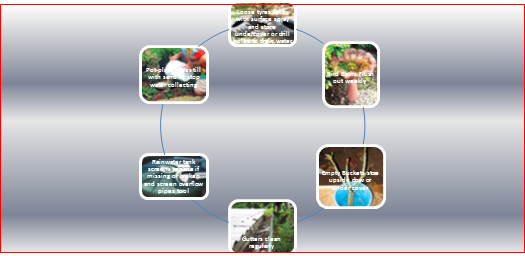Mosquitoes
Mosquito Management
Mosquitoes live and breed in different environments. Some live and breed in containers holding water around your house and yard while others are found in salt marshes or freshwater pools in the natural environment.
Some types of mosquitoes can spread disease to humans and animals while others are just a nuisance. The most common mosquito-borne diseases in Queensland are due to Ross River and Barmah Forest viruses.
Outbreaks of dengue fever have also been reported annually in north Queensland. Kunjin virus disease and Murray Valley encephalitis (MVE) have also rarely been reported.
Also some mosquitoes that breed around your house and yard can give your dog heart worm. So by stopping mosquitoes from breeding you will protect your family and pets
The risks
Mosquitoes that breed around houses can transmit diseases such as Ross River Virus, Barmah Forest and Dengue Fever to humans, and heartworms to dogs.
Under the Public Health Regulation 2005, it is an offence to have mosquitoes breeding in water at a place and penalties may apply.
South Burnett Region does have a number of types of mosquitoes including the mosquito called Aedes aegypti which is also known as the Dengue Mosquito. This is a great concern and Council needs your help to eradicate this mosquito.
Stopping Mosquito Breeding is Everyone’s Business
You can reduce the risk of your family being infected with dengue fever, Ross River Virus or Barmah Forest Virus just by eliminating mosquito breeding sites. These mosquitoes like to live and breed around people’s homes. The mosquito tends to hide under furniture and usually bites people indoors and during the day.
Council would like to encourage residents to scour their homes and gardens for things like buckets, old tyres, tin cans, toys, drains, gutters, plastic containers, fallen palm fronds, pot plant bases, vases, indoor plants and tip out the water and move or dispose the items so they can’t fill up with water. Also, checking rain water tanks to ensure they have screens on them so the mossies can’t breed.
You can also help control mosquitoes around the home:
- Pot plant bases: Preferably dispose of the base altogether. Alternatively, empty and clean the base weekly or put sand in it to absorb the water.
- Tins, tyres, jars, toys and rubbish items: Any items left lying around the yard that holds water will breed mosquitoes. Store undercover and dispose of all unwanted items.
- Roof gutters: Clean out leaves and other debris regularly. Cut back and trim trees. Blocked gutters will breed mosquitoes.
- Bromeliads and other water-holding plants: Other than removing the plants altogether use a high-pressure hose to remove any mosquito larvae.
- Rainwater, wells and drums: Large water-holding containers must be screened with wire gauze no coarser than 1mm mesh.
- Bird baths, fish ponds and ornamental ponds: Clean weekly to remove mosquito larvae. Keep Australian native fish in your ponds.
- Swimming pools: Keep chlorinated and regularly operate the pool pump all year round.
- Drains or depressions: Maintain drains to allow for water flow. Fill in any depressions to prevent water ponding
What is Council doing?
Local Governments in Queensland in accordance with the Public Health Act 2005 are responsible for the mosquito-borne disease prevention and control which includes community education, mosquito surveillance and control. South Burnett Regional Council is working with Consultants and experts in mosquito control to reduce the risk of disease and eradicating the Dengue Mosquito from South Burnett.
Council Officers are undertaking door to door surveillance inspections during peak breeding seasons including treating where mosquitoes are found breeding. Your cooperation with this program is greatly appreciated, however, if there is Refusal for entry, compliance steps will be undertaken to ensure no breeding is occurring on your property.
How does Council treat mosquitoes?
Council encourages householders to reduce water sources around homes, however if breeding is found Council officers are required to undertake measures to reduce breeding by removing the water source or with a treatment product that is similar to household pest control products found in your local hardware store.
If there are any queries about these you can contact Councils Environmental Services team 4189 9100 for further information.
For other treatment options or further information contact your local government or visit the Queensland Health Mosquito-borne Diseases website


